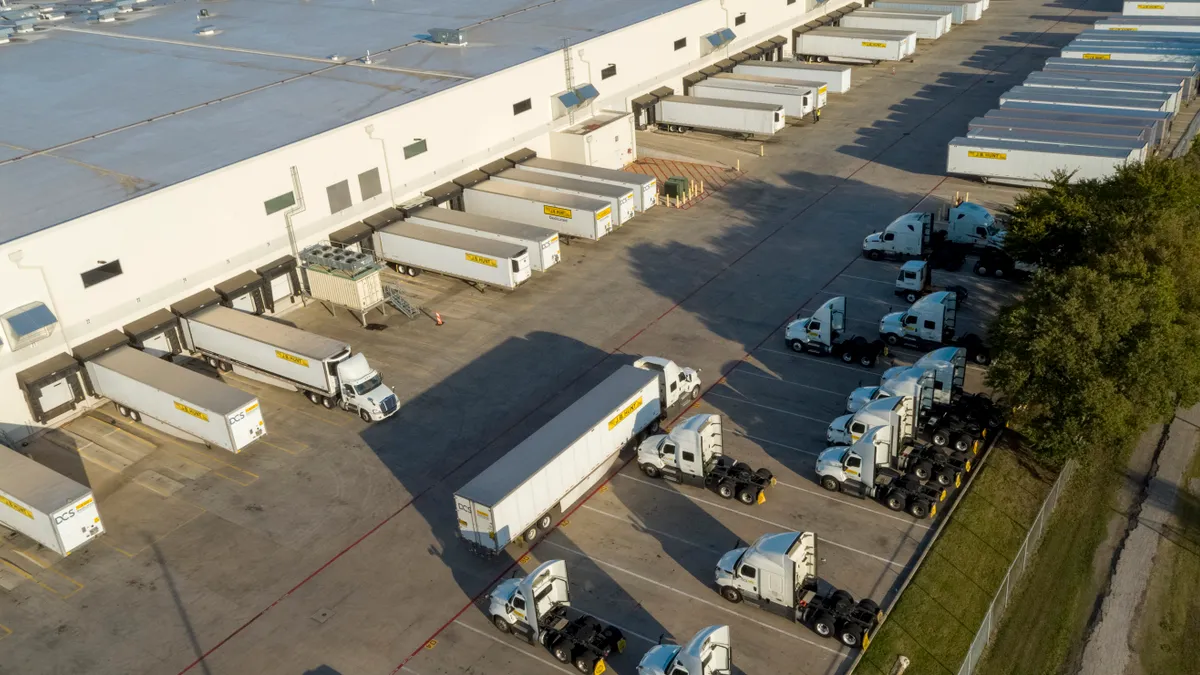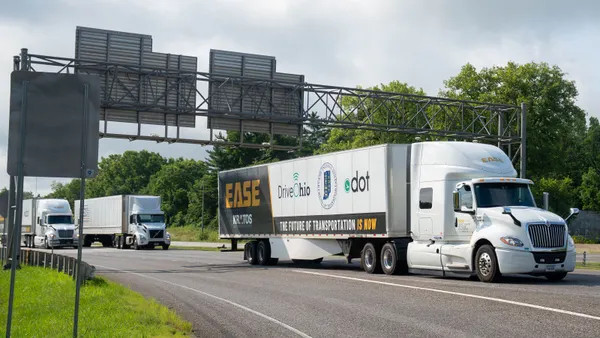J.B. Hunt Transport Services operating income tanked 30% year over year in Q1, the carrier reported Tuesday, which could foreshadow other disappointing quarterly earnings reports from the nation’s major trucking companies in the coming days.
The Lowell, Arkansas-based company reported a Q1 operating income of $194.4 million, compared to $277.5 million in Q1 of last year, as a soft freight environment persists. Revenue fell to $2.94 billion, down from $3.23 billion a year earlier.
“The highs and lows have been more dramatic than by any time period in my 30-year-career,” President and soon-to-be CEO Shelley Simpson said on a call with analysts Tuesday. “And so, our ability to predict has been very difficult.”
The decrease in operating income was primarily driven by a combination of lower volumes and yield pressure, as well as increases in equipment, insurance and claims, and bad debt expense, J.B. Hunt said in its earnings release.
The carrier’s intermodal, dedicated, integrated capacity and truckload divisions all saw operating income and revenue decreases in the quarter.
Final Mile Services was the lone bright spot for J.B. Hunt in Q1. The business unit’s operating income shot up 128% to $15.1 million, and its revenue rose 2% to $860 million.
While executives expressed disappointment in the company’s first quarter results with analysts, the carrier said it remains focused on growing its intermodal business and making investments in people and technology to drive efficiency.
More shipping business along with better rates would provide a much-needed boost, but forecasting when the market will turn has been elusive with shipping demand not following historical patterns, executives said.
Simpson said there is an oversupply of capacity in the market, which is not exiting quick enough. Delivering good service is what will retain customers as the trucking industry waits for the market to turn, she said.
J.B. Hunt is poised for a freight recovery. EVP and President of Intermodal Darren Field said the carrier’s intermodal fleet has 20% excess capacity. This was bolstered recently though the company’s acquisition of Walmart’s intermodal assets.
The containers acquired from Walmart will be added to the carrier’s fleet gradually throughout the year, though much of that capacity may go unused until demand increases, Field said. The deal with Walmart includes volume commitments, though Field did not disclose additional details citing confidentiality agreements with the retailer.
CEO John Roberts, who will transition to board chairman on July 1, recognized the challenges facing the company but expressed confidence in the executive team and looks forward to continuing his more than three-decade involvement with the carrier.
“We’ve had a great relationship with you folks, and it’s been a lot of fun,” Roberts said. “It's been a lot more fun than it hasn't. It's just not a lot of fun right now; so we got to go to work.”












